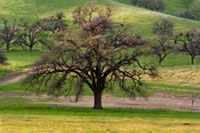Blog
Book Review: Greetings from Camp Davis
Greetings from Camp Davis: The History of a WWII Army Base, now in its 2nd Edition, is described by the author as a general history of Camp Davis. It hits the mark. Although the Camp’s operational history only spans a short time, its story is large. Its contribution to the Army and its impact on the local area was immense. The effort to build such a large base quickly on property that had no infrastructure echoed the ambitions of the United States Army to expand from 9 antiaircraft regiments in 1939 to a goal of having 46 regiments by...
read moreThomas Kennedy as a Clergyman
In previous posts I have been relating my searches for and research about the Rev. Fr. Thomas Kennedy. I learned of his existence and connection to my family through a FamilySearch Full-Text Search Finding Amelia Small in FamilySearch Full-Text Search. First, I looked into records about his life in Tracking the Rev. Fr. Thomas Kennedy and then I followed the trail to learn about The Military Service of Thomas Kennedy. Now it is time to see what I can find about his life as a clergyman. After searching Brooklyn City Directories (both by...
read moreThe Military Service of Thomas Kennedy
The search for the Rev. Fr. Thomas Kennedy began with a FamilySearch Lab’s Full-Text Search Finding Amelia Small in FamilySearch Full-Text Search and continued in Tracking the Rev. Fr. Thomas Kennedy. At this point I wanted to follow the thread about his Civil War service. My first stop for Civil War veterans is the Civil War Soldiers and Sailors (CWSS) database to learn what I could about his service and his organization. One surprise at CWSS was a note that: “This database is no longer maintained and updated.” I...
read moreTracking the Rev. Fr. Thomas Kennedy
Previously I posted about getting up and running with FamilySearch Labs: Full-Text Search and how I learned about a new ancestor in Finding Amelia Small in FamilySearch Full-Text Search. Everyone is connected to relatives, no matter how isolated they appear to be. It may be that I located a lead to a collateral relative who might help to answer these questions about Amelia Matier Small’s mother: 1) Where was Mary Kennedy born? 2) Who were Mary Kennedy’s parents? What I knew: Amelia’s parents were William Matier and Mary...
read moreFinding Amelia Small in FamilySearch Full-Text Search
Researching an Irish family in New York City can have its challenges. Some surnames were very common, and traditional naming patterns often resulted in many individuals with the same names across different branches of the same family group. The passenger lists of the mid- to late-1800s contain little identifying data. It can be difficult to trace these ancestors back to their place of origin in Ireland. With these challenges, one strategy to unravel the stories is searching for family units rather than individuals. The other strategy is...
read moreFamilySearch Labs: Full-Text Search
If you don’t already have a free account for FamilySearch, you need one!You may have used the indexes that are a part of court and land records will only list the principal people in the records. That means that you would find your ancestors’ probate records or the land to which they were a grantor or grantee. But what about the other names that are mentioned in these documents? You have probably seen a will that includes a list of individuals inheriting something from the deceased. These lists may be very helpful, as they may reveal...
read moreTales from Morning Reports: From Duty to Death
Although it was not directly about my father’s service in Greenland, I learned a lot about the place reading Greenland’s Icy Fury by Hansen, who was part of the Ice Cap Detachment stationed in Greenland during WWII. These brave few men battled the elements and topography to provide weather information to the Allied Forces about the north Atlantic and Europe. In the book there was a mention of a soldier taking his own life in Southern Greenland (p. 3). I wondered about the circumstances, how these isolated men might have come to...
read moreUK Outgoing Passenger Lists
Passenger manifests for those coming into the United States can be easier to locate than the outgoing passenger lists from the country of origin. I was able to confirm the ship that brought Bridget (Delia) McMahon to the United States, and know the date as described in the blog post Finding Single Irish Women Immigrants to New York City . Recently, during a free period of access to Ancestry UK, I decided to find Delia’s record in the Outgoing Passenger Lists. It proved to be a slight challenge, with a reminder to be flexible and...
read moreGreenland in WWII (Background)
As part of researching my father’s WWII military service, I have been doing a lot of reading about Greenland, especially its WWII history. Greenland was the site of amazing stories of the US Coast Guard, the Sledge Patrol and weather observers who were isolated for months on end. There are stories of heroism, survival and loss. Greenland has a strategic location in the North Atlantic. It was a advantageous stopping point for aircraft traveling between North America and Europe, and could provide a prime location for a sub...
read moreWWI Classification Lists Part 2: What’s in Them
Classification Lists show the results of the examination of the draftees, as well as where they were to be sent. Classification Lists are the Provost Marshal General’s Office (PMGO) Form 1000, that are found in NARA’s Record Group 163, the Records of the Selective Service System (World War I). As of this blog post being published, the Classification Lists at NARA are not available online. The sections shown in each column header of the Classification List refer to the applicable instructions in the SELECTIVE SERVICE...
read more


